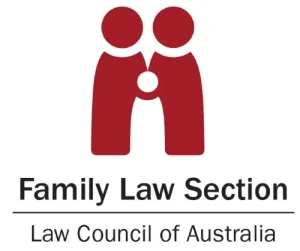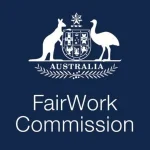Experienced Probate Lawyers Adelaide, South Australia
Probate
Are you looking for legal services from an experienced probate lawyer in Adelaide & wider SA who has a deep understanding of Wills and probate law?
Probate can be complicated to work through at a time when there is often high emotion to deal with. You may be already experiencing the loss of a loved one yet having to seek legal advice on issues concerning property law, commercial law, letters of administration and even divorce and other family law issues.
As leading probate lawyers in Adelaide, SA, we specialise in probate applications and various legal matters concerning deceased estates on a daily basis. Our knowledge means that you can rest easy when you choose to obtain our legal assistance for wills, inheritance and probate matters.
Boylan Lawyers Probate & Inheritance Lawyers
YOUR EXPERIENCED PROBATE LAWYERS

Paul Boylan
Senior Partner

Sebastian Hill
Partner

Pamela Badcock
Senior Associate

Deborah Hewitt
Senior Associate
PROBATE FAQ
What is Probate?
Probate is the legal process that is required to prove the validity of a Will and to register the last Will of a deceased person with the Courts. If it is necessary to administer formally:
- The Executor must apply to the Probate Registry of the Supreme Court for a Grant of Probate.
- ‘Probate’ is an Order of the Court saying that the Will is valid and that the Executor has the right to administer the Estate.
Applying for Probate is quite technical. The Executor must complete a number of forms to the satisfaction of the Registrar at the Supreme Court. Our trusted probate lawyers in Adelaide, SA and Tasmania can guide you through every step of the process.
What happens after the Probate is granted?
Once Probate has been granted, the Executor becomes the legal personal representative of the deceased. The Executor collects the deceased person’s assets and pays the deceased’s debts. At this time, it is important to find out the date and costs of acquisition of the deceased’s assets for the purposes of Capital Gains.
Funeral expenses are first and then there is a particular order in which the other debts must be paid. After funeral expenses are paid, the Executor is entitled to claim any expenses relating to the administration of the Estate before other debts are paid.
Once debts have been paid, assets are either distributed amongst the beneficiaries according to the terms in the Will or they are sold, and the money is divided among the beneficiaries.
Finally, the Executor must prepare a distribution report and statement for the beneficiaries, showing what the assets were, how much money resulted from any sale of assets and what expenses and debts were paid.
Our experienced probate lawyers in Adelaide, SA can provide professional advice to guide you through the process so every step is conducted in a lawful and streamlined way.
When are the assets distributed?
When all assets have been identified and, if necessary, sold to raise cash, and all debts have been paid, the remainder of the estate can be distributed to the beneficiaries.
When can a Will or inheritance claim to a deceased estate be challenged?
Believe it or not, it is common for Wills in South Australia to be challenged. There are many different reasons why a Will or the claim to a deceased estate may be questioned. Here are a few:
- The terms of the Will are invalid, unclear or improperly executed
- The testator executed the Will under duress or undue influence from another individual
- The testator didn’t have the proper capacity to sign the Will due to a diagnosed mental illness
- The testator didn’t make adequate provision for a spouse, child, extended family members, or another individual who was entitled to provisions from the deceased estate
The process of challenging a Will or inheritance claim to a deceased estate or defending a deceased estate from a challenge is complex, time-consuming, and expensive. Strict time limits apply under South Australian law. The application for such must be started within six months of the Letters of Administration or the Grant of Probate in order to be deemed valid.
You should seek targeted legal advice from our experienced lawyers for inheritance claims as soon as possible so you can properly build your claim for further provision from the estate.
How much does Probate cost in South Australia?
As long as the assets of the deceased’s estate are distributed by the terms of the Will, the estate or the beneficiary will not need to pay a stamp duty.
However, when there are legal costs due for Probate, these are payable by the estate. The more costs that the estate must pay out, the fewer funds that will be available for distribution among the beneficiaries.
The probate cost in South Australia will vary from one situation to the next. The filing fee with the Supreme Court of South Australia is determined based on the gross value of the deceased estate.
- Estate values of less than $200,000 will have a filing fee of $869
- Estate values of between $200,000 and $500,000 will have a filing fee of $1,738
- Estate values of between $500,000 and $1,000,000 will have a filing fee of $2,316
- Estate values of more than $1,000,000 will have a filing fee of $3,475
Who do I need to notify?
Please click here to view our helpful PDF on who to notify during the probate process.













